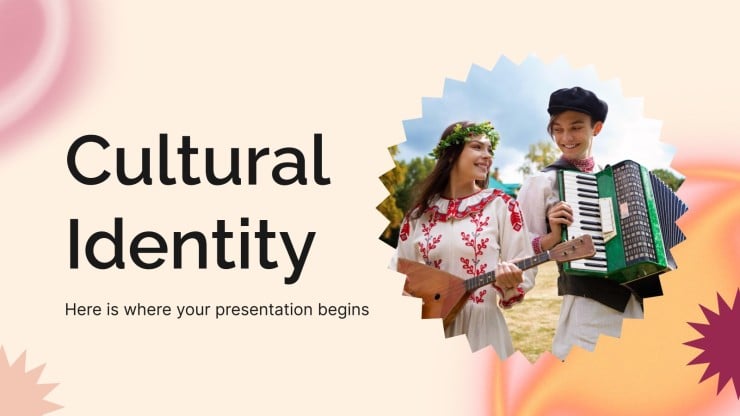The Right to a Cultural Identity: A Baha’i View
In an increasingly interconnected world, the question of cultural identity has emerged as a pivotal topic of discussion. What defines a person’s cultural identity, and how does it interplay with the diverse worldviews that permeate our societies? This inquiry invites us to consider complex dynamics inherent in the Bahá’í teachings, which advocate for the harmonious coexistence of individual cultural identities within a global framework. Yet, could the very essence of cultural identity become a source of contention, rather than unity, among diverse groups? This question propels us into deeper contemplation of how Bahá’í principles can illuminate our understanding of cultural identity.
The Bahá’í Faith, founded in the 19th century by Bahá’u’lláh, hinges on the foundational principle of oneness—of humanity and of the divine. One of the significant tenets of this faith is the recognition and appreciation of diversity, particularly cultural diversity. Bahá’í teachings assert that every culture possesses unique characteristics, virtues, and expressions deserving of respect. Cultivating an appreciation for these variances is fundamental in nurturing a sense of global citizenship.
At the heart of Bahá’í philosophy is the concept that cultural identity serves as an essential contributor to the individual’s overall sense of belonging. Each person’s cultural background encapsulates a wealth of history, values, traditions, and perspectives. This foundation fosters personal empowerment, which in turn strengthens communal bonds. Bahá’í teachings articulate the notion that a society thrives when its members are afforded the right to express and embrace their particular cultural identities, as these identities enrich the communal tapestry.
In exploring the right to a cultural identity, it becomes imperative to consider the implications of cultural relativism versus universality. While Bahá’í teachings advocate for the recognition of cultural diversity, they also promote certain universal principles that transcend individual cultural norms. For instance, the values of justice, equality, and truth are upheld as foundational pillars across all cultures. However, how do we navigate the complexities when cultural practices contradict these universal values? This potential conflict raises an intriguing dilemma: can cultural identity be preserved without compromising fundamental human rights?
The Bahá’í perspective promotes a balance between cultural specificity and universal principles. The teachings encourage individuals to engage in a process of cultural reflection, wherein one acknowledges their cultural influences, yet remains open to the assessment of these practices against the overarching tenets of justice and equity. In this light, Bahá’ís are encouraged to cultivate a discerning approach, selecting cultural elements that align cohesively with the values of unity and love for humanity.
Moreover, the right to a cultural identity can sometimes be threatened by external forces, such as globalization and cultural homogenization. As societies become more interconnected, there is a tangible risk that dominant cultures may overshadow and marginalize local traditions and identities. The Bahá’í response to this phenomenon is not one of resistance or isolation but rather a call for the promotion of cultural exchange and mutual appreciation. Bahá’ís are urged to engage in actions that promote cultural preservation as well as the appreciation of shared human experiences.
In the context of contemporary challenges, the role of education emerges as a vital instrument in fostering cultural understanding and respect. Bahá’í teachings emphasize the importance of education not only in literacy and academic knowledge but also in the cultivation of moral and spiritual virtues. Education empowers individuals to appreciate the richness of diverse cultures while also equipping them to challenge stereotypes and biases that may undermine cultural identities. The synergy of education and cultural identity thus serves as a catalyst for social transformation.
Furthermore, fostering intercultural dialogue is an essential aspect of the Bahá’í approach to cultural identity. The act of engaging with diverse perspectives fosters empathy, compassion, and mutual understanding. The Bahá’í community encourages its members to actively seek opportunities for cross-cultural dialogue, recognizing that such interactions can illuminate shared values and foster a sense of kinship regardless of one’s cultural background. In this spirit, initiatives that bring diverse groups together are instrumental in dismantling walls of misunderstanding and prejudice.
Finally, the recognition of cultural identity within the Bahá’í framework also encompasses the understanding of spiritual identity. Bahá’ís believe that true identity transcends cultural boundaries, anchoring itself in a larger spiritual reality. This view serves to harmonize individual cultural identities within a collective identity as part of the global Bahá’í community. In this sense, the right to cultural identity is not merely an assertion of individualism but is deeply intertwined with the recognition of a shared humanity. This understanding propels individuals toward a commitment to collective action and the betterment of society.
In conclusion, the Bahá’í teachings present a comprehensive approach to the right to a cultural identity, advocating for the celebration of diversity while simultaneously emphasizing shared spiritual truths. As we grapple with the complexities of cultural identity in an ever-changing world, the Bahá’í perspective challenges us to remain vigilant stewards of our cultural heritage while embracing the fabric of humanity that binds us together. The challenge lies in harmonizing our cultural loyalties with the universal quest for justice, equality, and unity. Will we embrace this profound responsibility? The answer can shape the course of our collective future.
